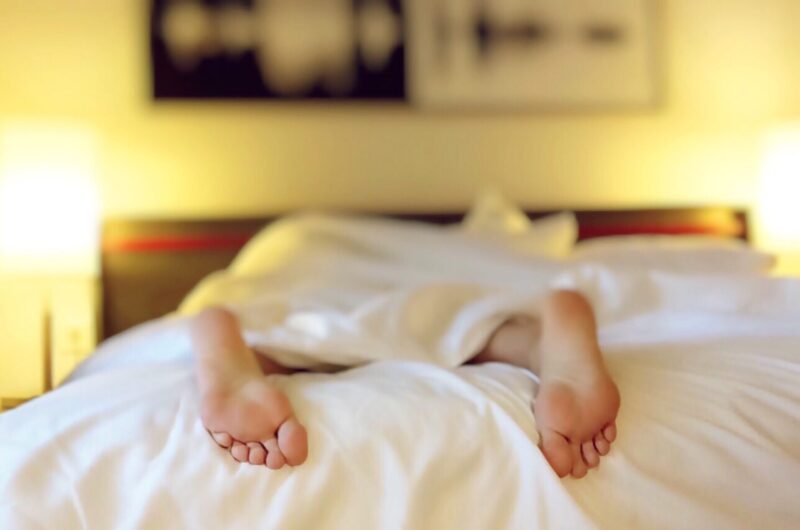
How many hours of sleep do you need?
Sleep is an essential part of our daily routine and plays a crucial role in maintaining our overall health and well-being. However, with the fast-paced and busy lives we lead, getting an adequate amount of sleep has become a challenge for many. The Centers for Disease Control and Prevention (CDC) recommends that adults between the ages of 18 and 60 should aim for at least seven hours of sleep each night for optimal functioning. But is this number of hours enough to truly recharge our bodies and minds? Are there certain factors that may affect the amount of sleep we need? And what are the consequences of consistently not getting enough sleep? In this article, we will delve into the science behind sleep and explore the ideal number of hours of sleep needed for adults to function at their best. By the end of this article, you will have a better understanding of the importance of sleep and how to ensure you are getting enough of it for a healthier and more productive life.
Don’t skimp on sleep, folks.
Getting enough sleep is crucial for your overall well-being and productivity. We all know that feeling of dragging ourselves through the day after a restless night or trying to function on just a few hours of shut-eye. It’s no secret that lack of sleep can negatively impact our mood, cognitive function, and even our physical health. So, if you want to be at your best, both mentally and physically, make sure to prioritize your sleep. Give yourself the time and space to unwind, create a relaxing environment, and establish a consistent bedtime routine. Your body and mind will thank you for it.
Let’s talk about snooze buttons.
Ah, the snooze button. That magical little feature on our alarm clocks and smartphones that promises just a few more precious moments of sleep. It can be tempting to hit that snooze button multiple times, convincing ourselves that those extra minutes will make all the difference in our energy levels for the day. But here’s the thing – relying on the snooze button can actually do more harm than good. When we hit snooze and drift back off to sleep, we’re essentially disrupting our natural sleep-wake cycle. Our bodies start to fall back into a sleep state, only to be abruptly awakened again a few minutes later. This can leave us feeling groggy and even more tired than if we had just gotten up when the alarm first went off. So, next time you’re tempted to snooze, try resisting the urge and embrace the day. You might be surprised at how much more awake and alert you feel by starting your day off on the right foot.
Caffeine can only do so much.
Now, don’t get me wrong, I love a good cup of coffee as much as the next person. That initial jolt of caffeine can definitely give us a temporary boost in energy and alertness. But let’s not rely on caffeine alone to sustain us throughout the day. Caffeine can only do so much. It’s not a substitute for a good night’s sleep. No matter how much coffee we drink, it won’t magically make up for a lack of quality rest. So, instead of reaching for that fourth cup of coffee to power through the day, let’s prioritize getting enough sleep at night. Our bodies and minds will thank us, and we’ll find that we have a more natural and sustainable source of energy to keep us going.
Prioritize your rest and relaxation.
When life gets busy and our to-do lists seem never-ending, it’s easy to put rest and relaxation on the back burner. We might think that pushing through exhaustion and sacrificing sleep is the only way to get everything done. But let me tell you, it’s time to flip that mentality. Prioritizing your rest and relaxation is not a luxury, but a necessity. It’s like giving your body and mind a much-needed reset button. So, instead of feeling guilty for taking breaks or going to bed early, embrace it. Schedule in time for relaxation activities like reading a book, taking a bath, or going for a leisurely walk. Allow yourself to recharge, because when you take care of yourself, everything else falls into place more easily.
Aim for 7-9 hours nightly.
Our bodies have an incredible ability to heal and rejuvenate themselves while we sleep. That’s why aiming for 7-9 hours of sleep each night is crucial for our overall well-being. It’s not just about feeling rested and energized the next day, although that’s definitely a perk. Getting enough sleep has a profound impact on our physical health, mental clarity, and emotional balance. It supports our immune system, helps regulate our hormones, and improves our cognitive function. So, instead of thinking of sleep as a luxury we can sacrifice, let’s embrace it as a vital part of our self-care routine. Make it a priority to create a sleep routine and environment that promotes a restful night’s sleep. Your body and mind will thank you for it.
So, how many hours of sleep do you really need at night? The answer is not a one-size-fits-all approach. It varies from person to person and depends on various factors such as age, lifestyle, and overall health. While the recommended amount of sleep for adults is 7-9 hours, it’s important to listen to your body and give it the rest it needs. So, whether you’re a night owl or an early bird, make sure to prioritize getting enough quality sleep each night to stay healthy and energized for the day ahead. Sweet dreams, my friends!


